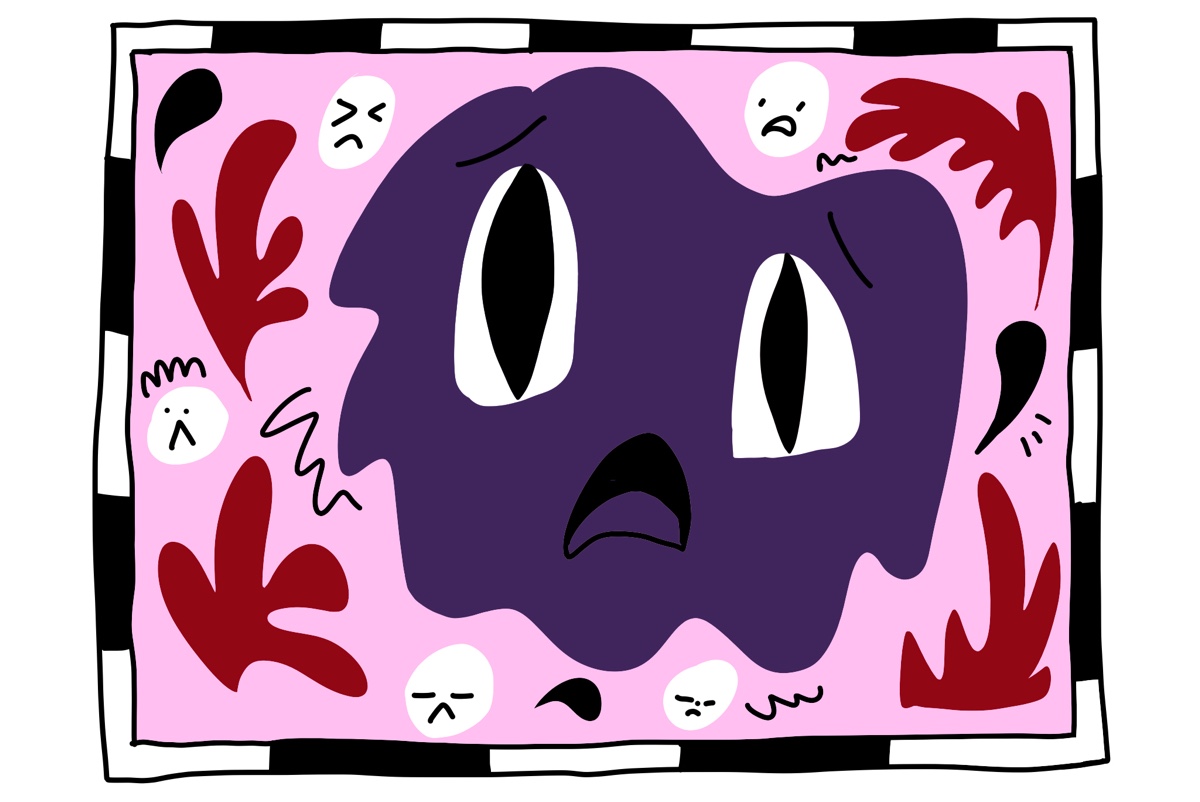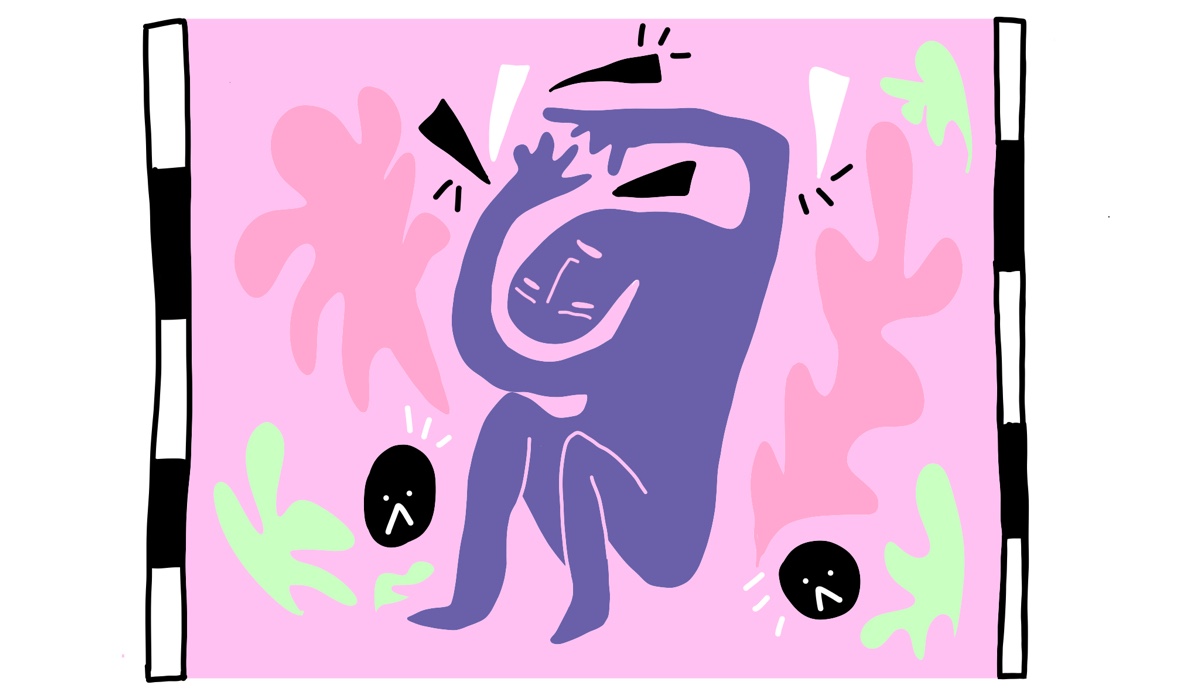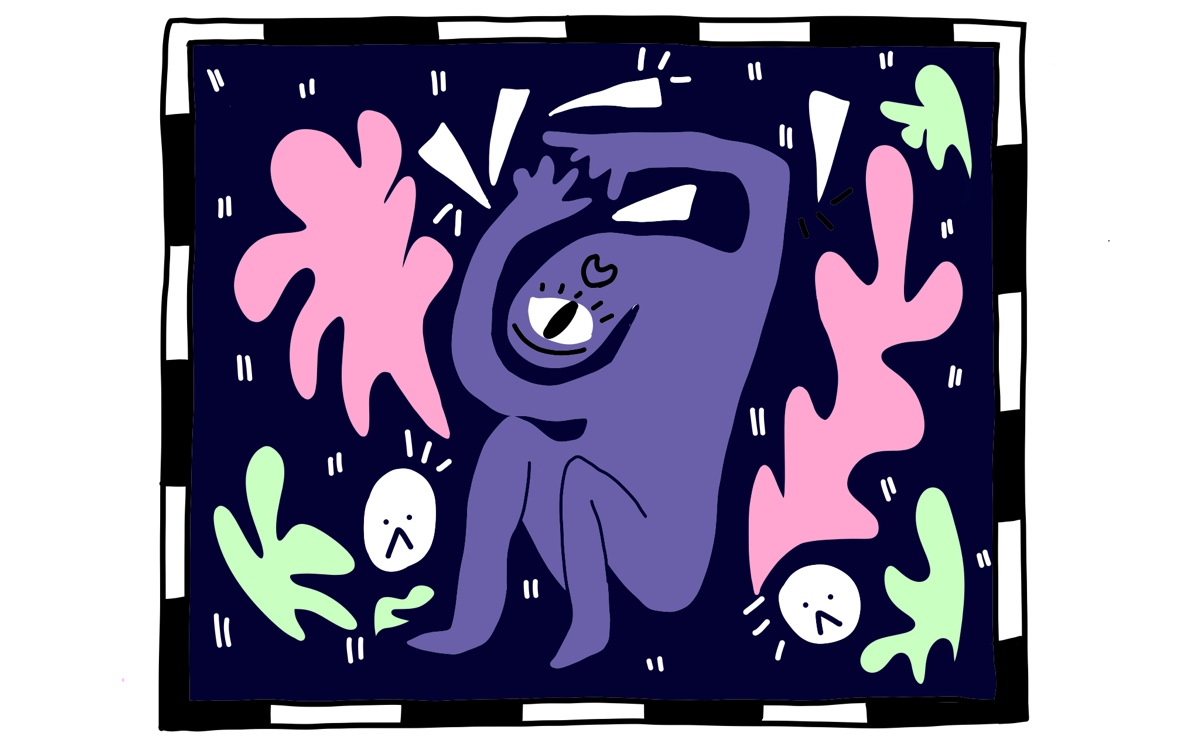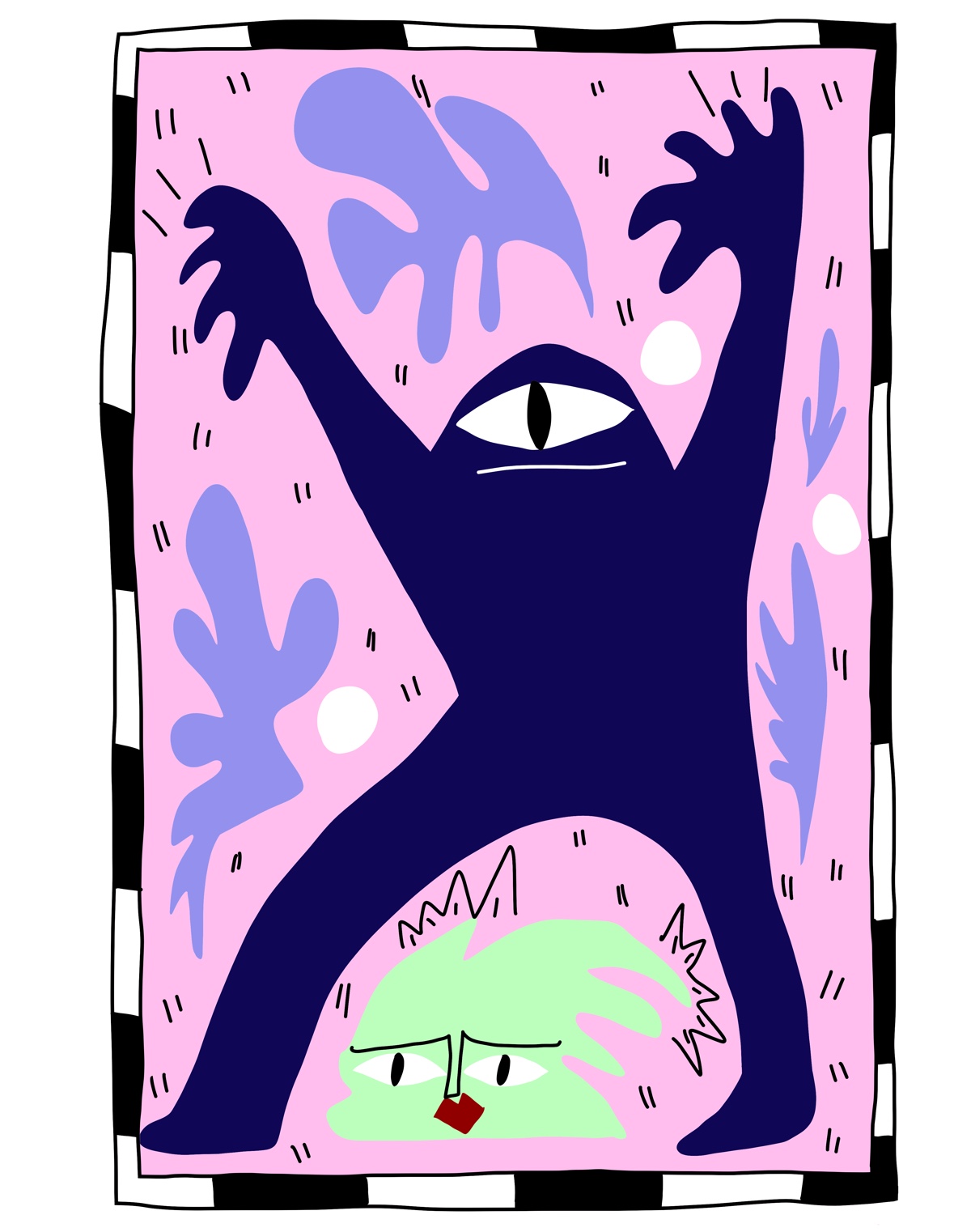My nausea was unshakeable. It was there when I walked, talked, and cut shapes on…
Mental Health and the Coronavirus
How To Take Care of Yourself and Others7 April 2020
If you open any social media app or news site, chances are the first thing you will be confronted with are updates on COVID-19, the Novel Coronavirus (sars-cov-2), which has affected the global community on an unprecedented level.
We at YEOJA Mag are determined to continue to bring you our regular content but have also decided as a team to feature certain articles pertaining to COVID-19 as it impacts our community, from mental health, to xenophobia. You can find all COVID-19-related pieces here. There will be a lot to unpack and discuss in the coming weeks and months. But firstly, we want to help alleviate some of the stress that a lot of people are feeling and talk about mental health in times of social distancing, self isolation, and quarantine.
How to take care of yourself and others in times of quarantine, self isolation, and social distancing
There is really no other way to explain 2020 other than wild. In a matter of months, the Coronavirus has swept across the globe with unprecedented speed, forcing many governments to enact rules from social distancing to quarantining entire cities. If you are currently required to stay at home, whether it’s because of social distancing, your whole region being on lockdown or because you’re under quarantine, keep reading…
Being forced to stay indoors is easier said than done for most on a good day. Add a pandemic, job uncertainty, pre-existing mental health conditions, and/or less than ideal living situations (like living alone or with unsupportive roommates), and it’s easy to see why taking care of one’s mental health is more important than ever. While there is never a one-size-fits all for anything in life, we have compiled some tips on how to look after yourself and others during this period.
Stay Social
Chances are everyone and their grandmother have heard of the concept “social distancing” at this point. Social distancing is based on the idea that we can slow down the spread of COVID-19, by reducing the amount of in-person contact between sick people and healthy people.”Scientists have stated without using social distancing measures, each person infected is likely to pass the virus on to 2-3 other people. Avoiding an exponential explosion of growth of infections in a short amount of time and instead spreading lower rates of infection out over a longer period of time can not only lower the overall number of infections, but it also prevents our healthcare systems from becoming overwhelmed (which would lead to more deaths which could otherwise possibly be avoided). This is what is meant by “flattening the curve”.
While the concept of social distancing is extremely important, the phrase itself can be misleading, as the distance we need to create is a physical one, not necessarily social. Social contact, in fact, is more important than ever. After all, loneliness is linked to increased risks of physical and mental health conditions such as depression, addiction or cardiovascular disease.
Make sure to check in regularly with your friends and family members and get creative. This can range anywhere from an elaborate virtual hangout party, to online gaming together, to just a simple phone call. Some video chat apps that can help you stay social are Facetime (Apple users only), Zoom, Google Hangouts and Houseparty. Netflix party is also a great way to watch Netflix together with your friends, family, or partner online.

Try to Retain Some Type of Routine/Sense of Normalcy
Try to keep up with your daily routine as best as possible to try to retain a level of normalcy. Go to bed at your usual time. Eat regular meals, don’t just graze. Move your body in a way that feels good for you. Make sure to change out of the clothes you have slept in and get dressed in the morning. This can mean wearing your usual office clothes or just putting on a different pair of jogging pants. You can also try to incorporate little rituals into your day like a drinking cup of coffee while looking out of your window in the mornings or scheduling a phone call with a friend every evening. This is also a good time to dive into self care; whatever that means to you. It may just be upping your pampering routine and trying out that face mask that has been sitting on your shelf for a while. It might not stop the spread of the Coronavirus, but it might just help you stay a little bit saner and get through another day of quarantine.
When the days seem to roll straight into each other, setting these little event markers throughout your day can also go long ways in breaking up the time.
Brush your Teeth
The wise Lady Leshurr once said, “brush your teeth.”, and she ain’t wrong. Whilst it is easy to fall into a cycle of not showering or brushing your teeth when your normal routine feels like it’s disappeared, good hygiene is a form of self care, and hand washing in particular is also extremely important during a pandemic to help lower the spread of infection. The best way to wash your hands is with clean running water and soap for at least 20 seconds. That being said, all this advice about hand washing, hygiene, and the spread of infection can be triggering for people with anxiety and OCD. If you are experiencing problems and need support don’t hesitate to reach out and get professional help.
Learn a New Hobby
Learning something new just for the fun of it can be an excellent way of distracting yourself from all that’ss going on, and also keeps your brain occupied and challenged. Pick up a paintbrush, learn a new recipe, or start writing that cheesy romance novel you always wanted to write. A lot of hobbies like practicing yoga or doing arts and crafts also have proven therapeutic value. Just be careful to not fall into the trap of self-optimisation. You don’t have to learn five new languages or be able to code an app from scratch after all of this is over. After all you’re doing this for yourself, not to make yourself more valuable to potential employers.
Don’t do anything
It is all too easy to continue to be held captive by neo-liberalist capitalist norms and ideals – even during lockdown. But please do not feel bad if you are not being your best productive self during this time. It is extremely important to remember that everyone is handling this pandemic differently, and with the exception of the few of us born before 1918 that are still alive today, this is our first time living through a pandemic. There is no right or wrong way to be feeling right now and there is certainly no right or wrong way you should be using your time right now. It’s also entirely okay NOT to pick up a new hobby right now.
Stay informed but moderate your intake of Coronavirus news
While you probably have the urge to stay up to date on all of the recent Coronavirus news, it is also important to moderate your intake. While it’s totally normal to want to keep yourself informed and know what is happening, excessive checking of the news can also lead to an increase of your anxiety levels. Instead, behavioural psychologist Jo Hemmings suggests creating a “worry window“, which is a specific amount of time each day where you allow yourself to access the latest news reports rather than continuously exposing yourself to the news (and the stress associated with it) the entire day.
Another area to consider when accessing news resources is to make sure they are reputable news sources that you can trust, rather than posts on social media or speculative articles that may or may not be supported by the facts. It may also be helpful to unfollow or mute social media accounts that make you feel anxious about Coronavirus.

Stay on top of your anxiety and other mental health conditions
It is important to stay on top of pre-existing mental health issues. The chances of relapsing for those who have struggled with addictions, eating disorders, panic attacks, depression, anxiety disorders even after being “in remission” can become even higher when stressors become greater than usual.
Obsessive-compulsive disorder (OCD), generalised anxiety disorder, social anxiety disorder, agoraphobia, acute stress disorder, Post Traumatic Stress Disorder, and separation disorder are some of the mental health disorders that are particularly affected by the COVID-10 pandemic.
For example, people with Obsessive-compulsive disorder (OCD) are at a higher risk right now, as their disorder is intrinsically linked to anxiety about disease, germs, and social interactions. The whole situation is also especially difficult for those dealing with health anxiety. It’s easy to fall into the trap of constantly monitoring your body for possible signs of the disease – causing even more anxiety. If you catch yourself in this situation please consider talking to somebody, preferably a mental health professional. There is absolutely no shame in doing so.
So how can you deal? Continue implementing strategies that you have learnt through therapy or that you know can help you cope; like meditation and breathing exercises. If you haven’t started meditation or breathing exercises, consider starting them. Apps like Headspace are a great introduction to meditation, and at-home yoga channels, like Yoga with Adriene can help with mind and body connections.
If you are prescribed medication make sure to take them at your regular intervals. Try to keep up with your therapy appointments as best as possible. Stay in touch with your therapist. Many have already moved their session to digital ones, maybe this is possible for yours too. There are also online services like Talkspace which can help if you do not already have a therapist and are daunted by the idea of trying to find a therapist during a pandemic.
The whole situation is especially difficult for those dealing with health anxiety. It’s easy to fall into the trap of constantly monitoring your body for possible signs of the disease – causing even more anxiety or as behavioural psychologist Jo Hemmings explains: “The symptoms of Coronavirus actually are quite similar to anxiety in some ways, that’s worth bearing in mind. It’s difficult to catch your breath, you feel like your chest is tightening, you get these pulsating waves through you – that’s what happens when you’re overanxious.” If you catch yourself in this situation please consider talking to somebody, preferably a mental health professional. There is absolutely no shame in doing so.
Above all, remember that it is ok to feel vulnerable and overwhelmed right now. Times like this come with a huge sense of uncertainty – especially if you are financially impacted by the crisis or are in precarious working or living conditions. It is also ok to grieve the loss of normalcy, to miss your friends and family, and to be upset about missing out on personal milestones, like birthday parties or weddings. Your feelings are valid and you are allowed to feel them.

Be an ally to others right now
While we need to focus on our own mental health, it is also important that we all work together to ensure our social units big and small remain healthy as well. Don’t forget to check in on your loved ones, especially those who are in difficult situations right now or who are prone to mental health issues.
The effects of loneliness in times of social distancing can be especially hard for those who are living alone or together with people they have strained relationships with, whether that be unsupportive family members or roommates. Being forced to stay indoors can also turn life threatening for those who are cohabitating with violent partners, friends, or family members. If a friend of yours is in a situation like this it might be a good idea to check in with them.
If their life is in danger, remind them that they are still allowed to leave home to seek help and that national domestic abuse helplines are available and that they should always call the emergency number in their country if they are in immediate danger. Refuge.org has listed some tips on steps to take to protect oneself and ones children in the home. If you are concerned about your friend, you yourself can also call the national domestic abuse hotline in your country which usually offer confidential support on how best to help the person you are calling about.
Those who live with post-traumatic-stress disorder (PTSD) can be particularly affected by social distancing as their most effective therapeutic strategy is company. Patrick McGrath, head of clinical services for NOCD, explains, “Patients with PTSD can be isolated and often arrange for people to come by and check on them. Now no one is knowing on the door.” Make sure to check in with your friends who have experienced PTSD. While you may not be a licensed therapist, setting up a weekly call so your friend knows their support systems are still in place can make a huge difference.
Other people from our communities are not only dealing with the virus itself but dealing with the fear of xenophobic and racist attacks, especially for those with East Asian or Southeast Asian descent. When you see xenophobic or racist behaviour and speaking up will not put you in direct danger, speak up. You might not be able to change a racist’s mind completely, but giving them a hard time and making them aware that not everyone agrees with them is more powerful than doing nothing.
Many are also suffering financially right now which adds a lot of additional stress. If you are privileged enough to still have your job and financial stability during the crisis, consider donating to charities that support people on the margins like the homeless, refugees or womxn’s shelters. You can also find ways to support your favourite small businesses, small cultural venues, as well as arts and cultural workers. There may already be some local initiatives in place in your area. On a local level, you can also help increase solidarity in your neighbourhood by offering to shop for elderly people or those in high-risk groups.
It’s a crazy time for all of us, but we will get through this, together!
_
This article has been co-written by Rae Tilly and Sarah Hauber. Original artwork created exclusively for YEOJA Mag by Beverley Edwards.








